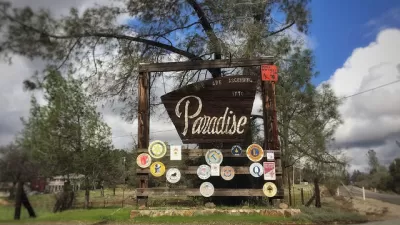State officials ruled that the City of Sacramento did not meet deadlines for financing the K Street revitalization project, including improperly allocating redevelopment funds. The city disagreed and will sue to overturn the decision.
Several months ago, a project to revitalize the long blighted 700 block of K Street in downtown Sacramento was about to start. Unfortunately, a State Department of Finance decision in June regarding unmet financing deadlines meant the project couldn't move forward. That decision was recently upheld, and the city will sue to have the decision reversed.
The $48 million public/private partnership project; which included housing, boutiques, restaurants and a live music hall; required many different funding sources including the handing over of several city-owned properties and other redevelopment subsidies to the developer. One major disputed issue is whether the City properly secured the project's funding plan and appropriately extended the developer agreement.
“The state is not looking for ways to help cities transition from the days of redevelopment to post-redevelopment,” [City Manager John Shirey] said. “They’re looking to penalize and grab money anywhere they can, and it doesn’t matter that the project is in the state capital in the shadow of the Capitol.”
FULL STORY: K Street Project Threatened as State Withholds Redevelopment Money

Manufactured Crisis: Losing the Nation’s Largest Source of Unsubsidized Affordable Housing
Manufactured housing communities have long been an affordable housing option for millions of people living in the U.S., but that affordability is disappearing rapidly. How did we get here?

Americans May Be Stuck — But Why?
Americans are moving a lot less than they once did, and that is a problem. While Yoni Applebaum, in his highly-publicized article Stuck, gets the reasons badly wrong, it's still important to ask: why are we moving so much less than before?

Using Old Oil and Gas Wells for Green Energy Storage
Penn State researchers have found that repurposing abandoned oil and gas wells for geothermal-assisted compressed-air energy storage can boost efficiency, reduce environmental risks, and support clean energy and job transitions.

Updating LA’s Tree Rules Could Bring More Shade to Underserved Neighborhoods
A new USC study finds that relaxing Los Angeles’ outdated tree planting guidelines could significantly expand urban tree canopy and reduce shade disparities in lower-income neighborhoods, though infrastructure investments are also needed.

California's Canal Solar Projects Aim to Conserve Resources and Expand Clean Energy
California’s Project Nexus has begun generating electricity from solar panels installed over irrigation canals, with researchers and state agencies exploring statewide expansion to conserve water and boost clean energy production.

HHS Staff Cuts Gut Energy Assistance Program
The full staff of a federal program that distributes heating and cooling assistance for low-income families was laid off, jeopardizing the program’s operations.
Urban Design for Planners 1: Software Tools
This six-course series explores essential urban design concepts using open source software and equips planners with the tools they need to participate fully in the urban design process.
Planning for Universal Design
Learn the tools for implementing Universal Design in planning regulations.
Heyer Gruel & Associates PA
City of Moreno Valley
Institute for Housing and Urban Development Studies (IHS)
City of Grandview
Harvard GSD Executive Education
Salt Lake City
NYU Wagner Graduate School of Public Service
City of Cambridge, Maryland





























